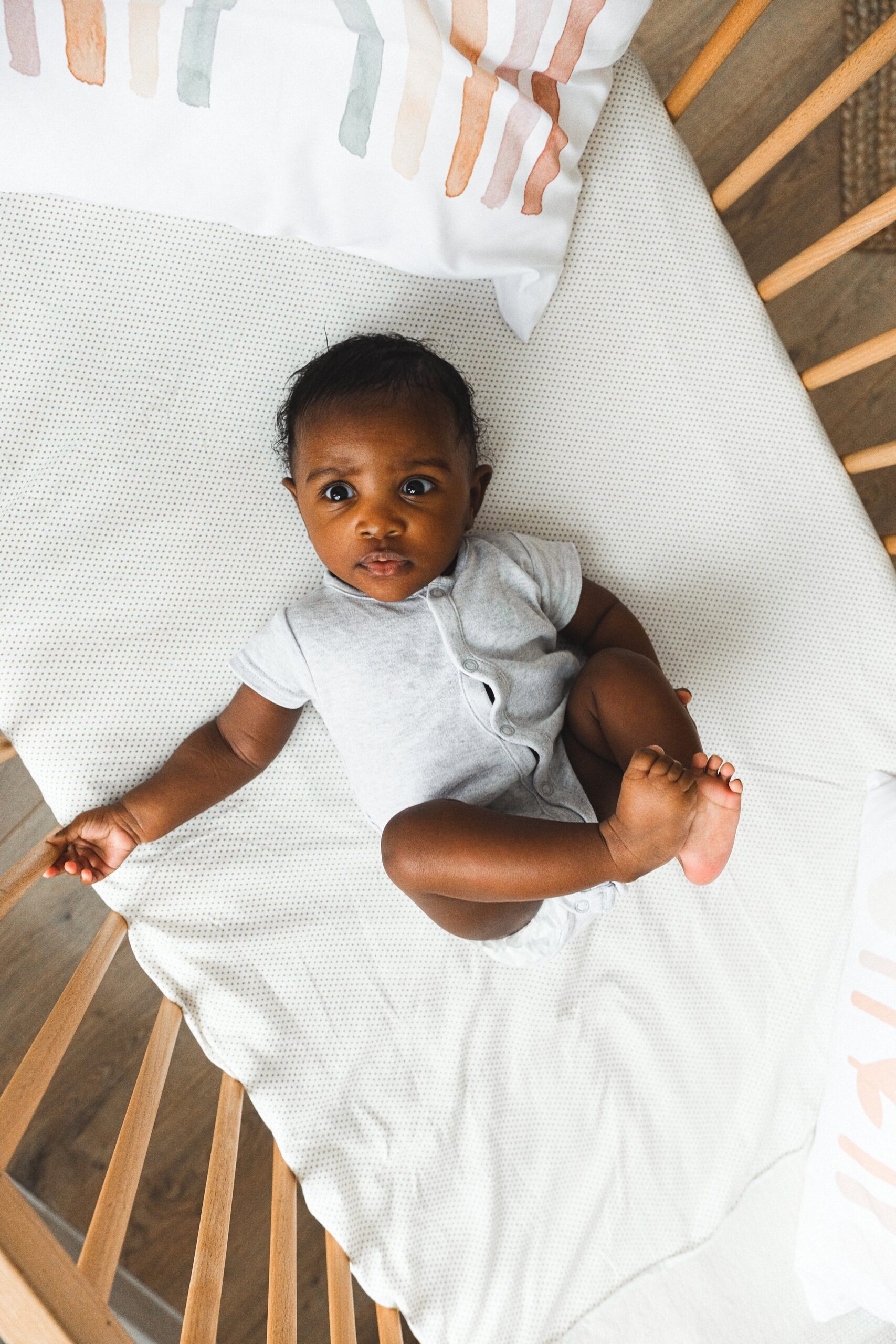I'm Rachael
Mom of 3 & Baby Sleep Expert with Big Sis Energy
& I’VE DONE ALL THE RESEARCH FOR YOU ALREADY.
Better sleep for the entire family
BROWSE COURSES
hey!
The 6 Month sleep regression
What’s up with 6 month olds? Well- a lot. Six month old babies are BUSY! There’s so much new stuff happening for them which is super exciting, but can also lead to some intense sleep struggles! Between 5-7 months or so you may notice:
-
Wake times are likely increasing, and most babies can be awake for about 2 or 3 hours, though some wake times might be a little shorter or longer and that’s ok too!
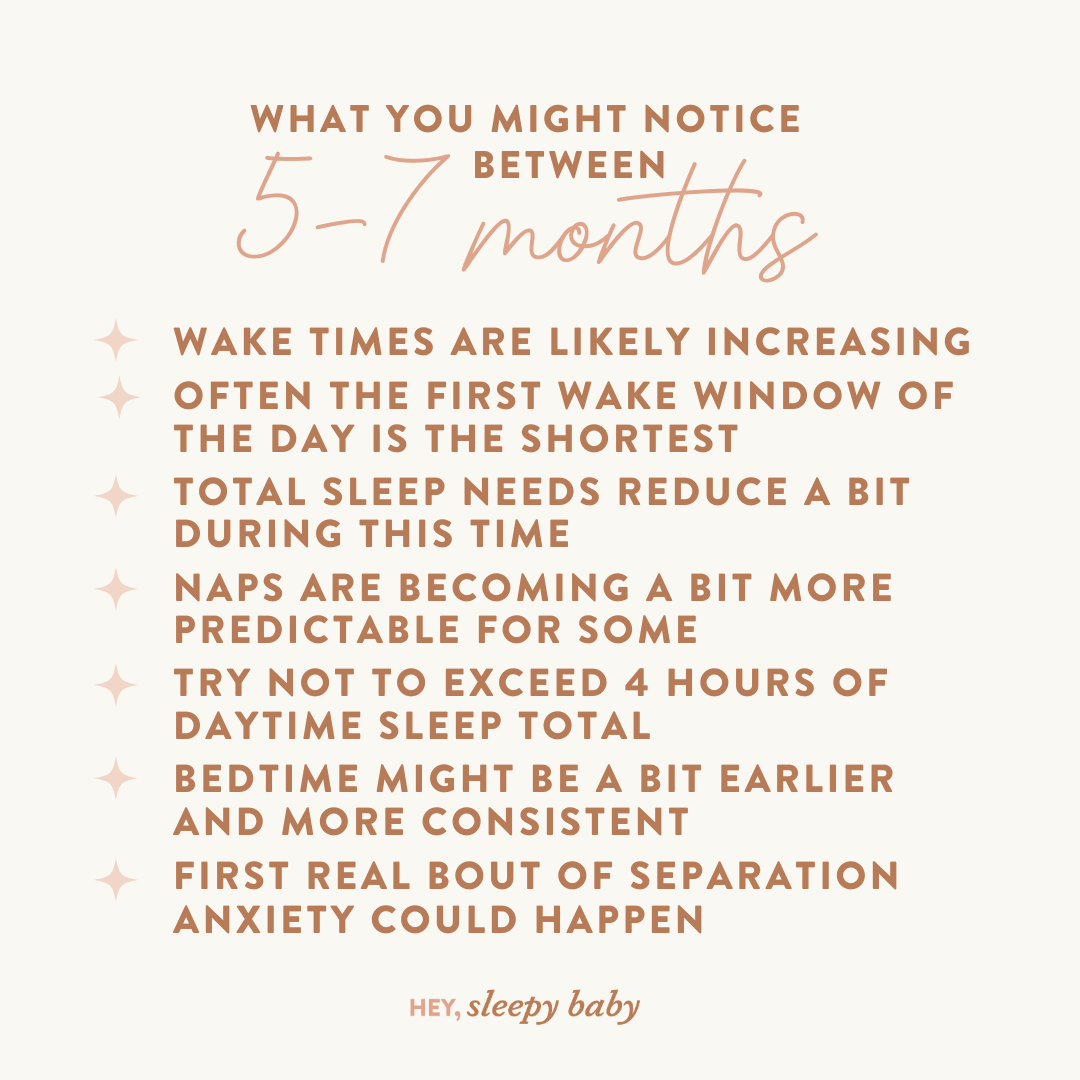
-
Often the first wake window of the day (between waking and first nap) is the shortest. The wake time before bedtime might also be on the shorter side, though some infants need more sleep pressure before bedtime and this wake window is the longest of their day. Some babies do well with a 2,3,4 schedule at this age. 2 hours between wake time and first nap, 3 hours in between naps, and 4 hours before bed. Theres no one right or wrong schedule- so don’t be afraid to experiment and see what works best for YOUR baby!
-
Total sleep needs reduce a bit during this time, most babies need about 12-15 hours sleep per 24, split between naps and overnight. For many babies this means 3-4 hours per day of naps, and 10-12 hours of nighttime sleep. Don’t worry if it’s a bit more or less for your baby- this is just the average.
-
Naps are becoming a bit more predictable for some, with most babies on 3 naps per day. Some may have 3 naps plus a 4th cat nap, which is also fine. Some babies are ready to drop to 2 naps by around 7 months, though this is on the early side. It all depends on baby’s total sleep needs and how long each nap is.
-
Continue to cap each nap at no more than 2 hours, especially if there are more than 2 naps per day. Try not to exceed 4 hours of daytime sleep total. And don’t worry if your little one is still cat napping– it’s still totally common at this age!
-
Bedtime might be a bit earlier and more consistent now as well. Many babies at this age do well with a bedtime between 7-9pm. A bit earlier or later is also fine, depending on your family’s schedule and how much sleep your little one tends to take overnight.
-
Your 6-Month old baby might be going through their first real bout of separation anxiety– meaning extra clinginess, difficulty with sleeping in their crib, extra nursing etc.
The 6 months sleep regression (or sleep PROgression as I prefer to call them!) might mean your little one’s sleep is backsliding. You may feel like you barely made it through the 4-month sleep regression and now this!? Lots of parents report a sleep “regression” around this age, with noticeable differences in how their baby is sleeping. There might be more night waking, bedtime battles or nap struggles (or all of the above). Why is this happening?There are a few reasons sleep gets tricky right now.
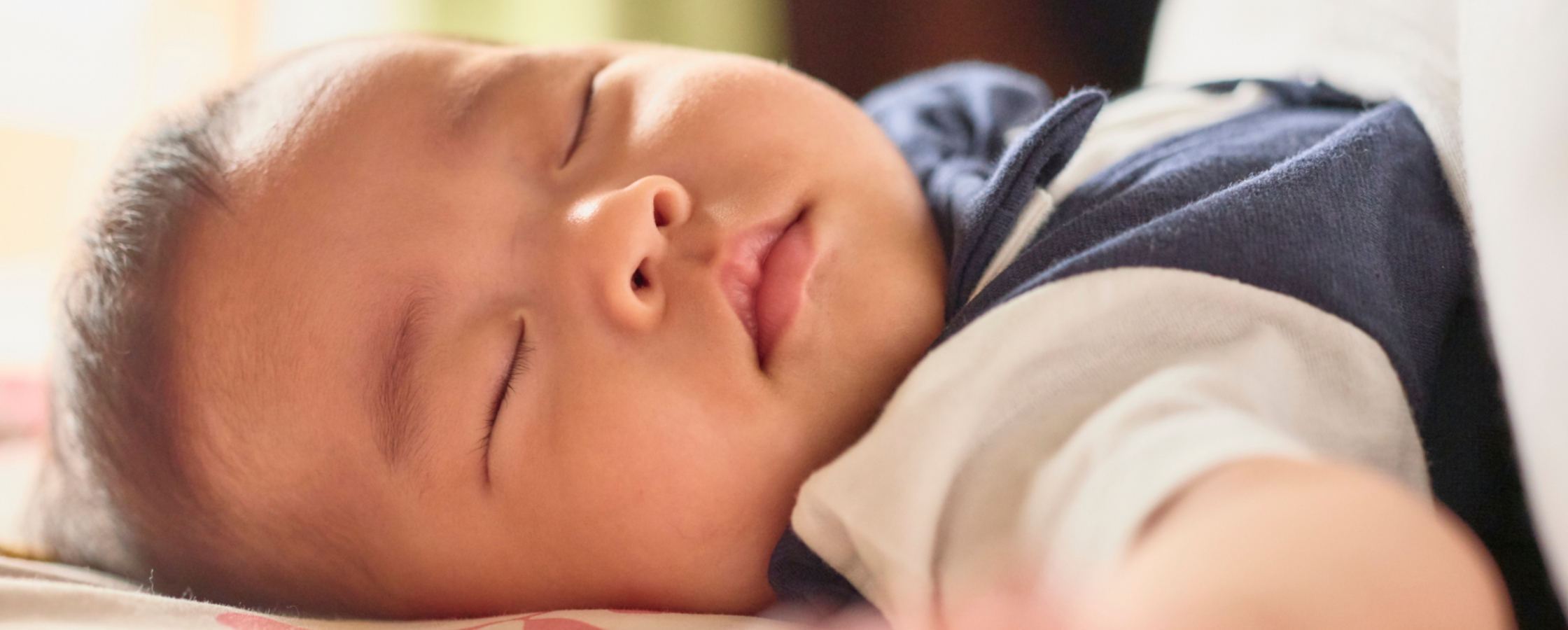
The 6 month sleep progression
-
Baby might be going through a nap transition, dropping that 4th nap, which can take a little while to fully solidify. The new schedule may take some time to adjust to, which is one reason we see trickier sleep.
-
Many babies experience a big growth spurt at 6 months, and this means they are eating more! You’ll probably notice increased feedings overnight as baby bulks up. While it might feel like you are feeding your little one constantly, babies at this age don’t know how to overeat. If you are a nursing mom and they are actively nursing (listen for the suck-suck-swallow pattern), then they need these frequent marathon feeds.
-
Your baby is probably starting on solids. While this is great, it’s a big change for their sensitive digestive systems, and some babies will experience some constipation or other tummy discomfort. If your baby ever seems VERY uncomfortable or constipated, or if they have any reactions to new foods like vomiting, rash, etc., be sure to contact your doctor right away. Food sensitivities or allergies might need to be considered.
-
Babies at this age are starting to become highly interested in the world around them, and very distractible. This can sometimes cause missed or short feedings during the day. You might notice it’s hard for your baby to just chill while nursing or drinking from their bottle. When will they make up for those lost calories? That’s right- at night! You may need to offer feedings in a dim or dark room or an area with very limited distractions. Feeding “on the go” might not be possible for a little while during this phase.
Things to Try:
-
Baby boot camp time! Provide as much time as possible during the day for your little one to try out their new skills. This means lots of floor time, encouraging rolling and scooting or crawling. You might need to help teach your baby how to get themselves back down if they get stuck while sitting unassisted. Try placing a toy behind their back while seated, and encourage them to rotate their trunk around to get it, then support them in leaning down to the ground in order to get the toy, ending up on their belly.
-
Be sure baby gets a good full feeding before bedtime and doesn’t fall asleep too quickly at the breast/bottle. Babies at this age can become very distractible, so try offering feedings in a very boring location. Try dimming the lights, avoiding screens, etc. Offering a feeding right when baby wakes up can be a good time to do it, because they are still a little groggy and relaxed. You want to make sure they take their whole feeding so they don’t wake hungry quickly after bed. If needed you can move the feeding to a bit earlier, THEN do the bath or jammies or books part of your routine, and then finally rock to sleep.
-
Rolling in the crib can cause a lot of nighttime disruptions at this age. Be sure baby gets lots of time to practice rolling during the day and tons of time to play on the floor. Remember that it’s still safest to place baby down on their back (per the AAP guidance) but once they can roll both ways independently, if they roll to their tummy and are cozy there, it’s fine to leave them. Be sure there are no blankets or pillows in the sleep space.
-
Keep an eye out for possible food reactions. If your baby has changes in their stool, rashes, etc. and/or is very fussy at night, screaming, or otherwise uncomfortable, contact your doctor right away. Take photos of what you’re noticing and start a food journal to see if you can find a potential intolerance or allergy that could be bothering them (and impacting sleep!).
-
If your baby is sleeping in their crib, they may be experiencing some separation anxiety. Check out tips for this here. If you are trying to get your little one to sleep in their crib for naps or nights for the first time and struggling, check out the Ultimate Crib & Floor Bed Guide to get started!
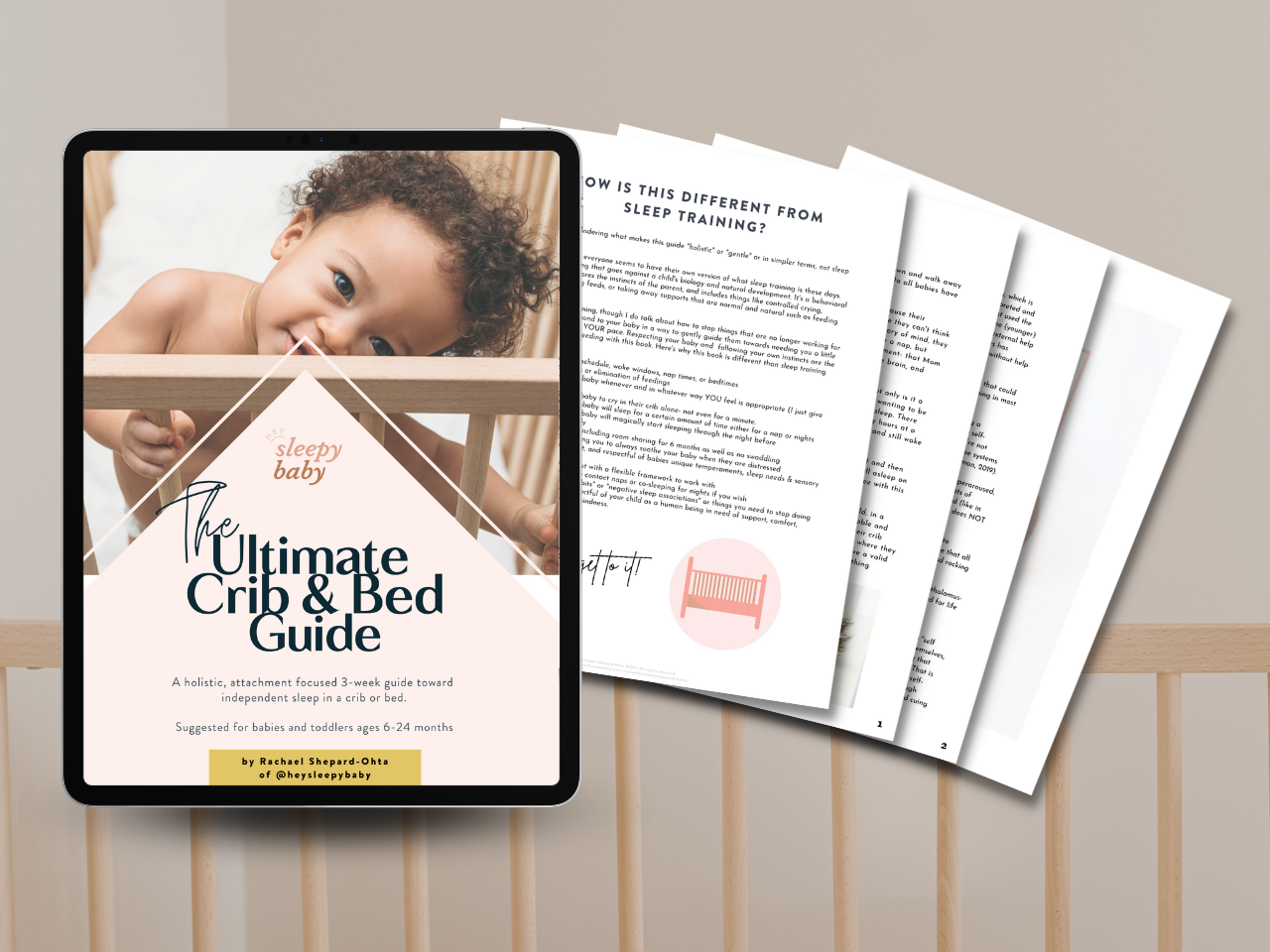
-
If your baby is starting to teeth, you can provide comfort but be sure to only use safe and approved products. Check out my blog on teething here.
If you have concerns about your baby or their sleep/ feeding behavior or things aren’t getting better, check out my Red Flags info or book a consultation with us!
If you are looking to move on from cosleeping or to make other supported changes to your little one’s sleep, then check out our Tender Transitions Course.
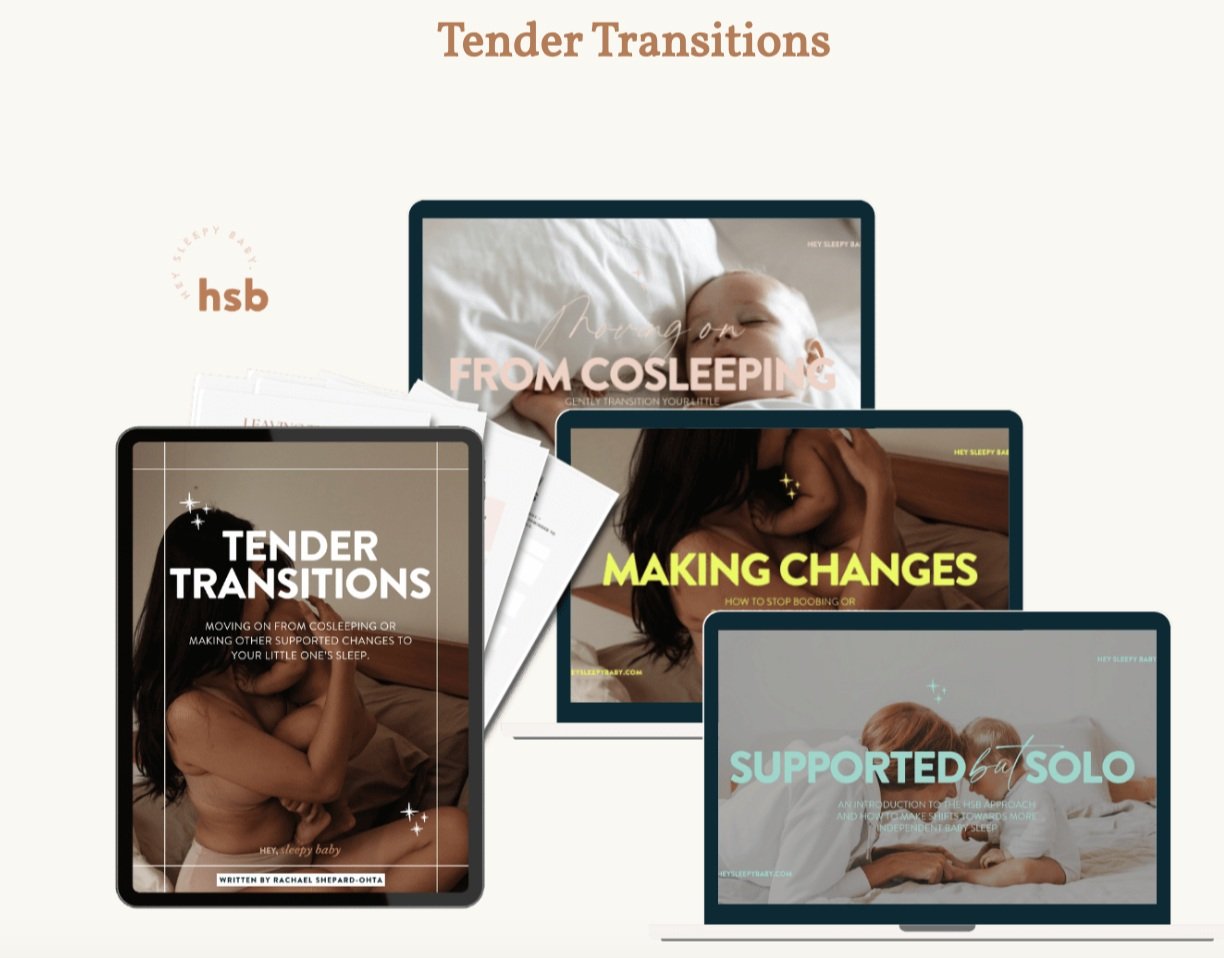
Was this helpful? Save it for later!
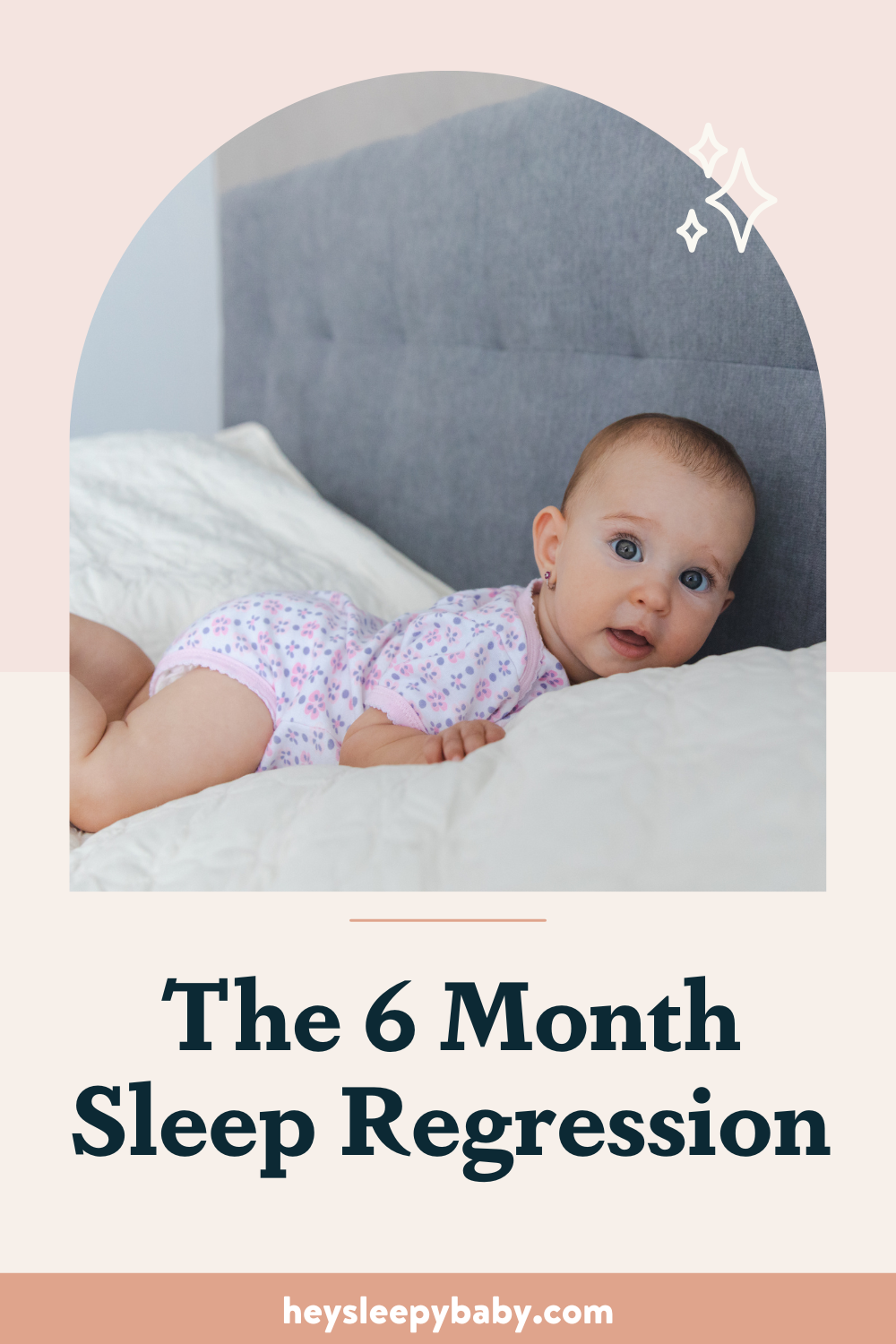
binge reads
We think you'll love these
You deserve to the
baby stage, not just "survive it."
And you DON'T have to sacrifice your values, ignore your instincts, or force yourself to follow a method you don't align with just to get your baby back to sleep.
I’m here to help you create a restful, sustainable sleep environment that honors both your baby’s needs AND your own (without the stress OR the guilt!) because, no, you don’t have to choose between the two.
enjoy!
BABY SLEEP COURSES →
BABY SLEEP CONSULTS →
Wish you could help your baby sleep better without resorting to sleep training? Download my FREE guide to a good night’s sleep and learn 8 simple, science-backed tips for supporting your child’s needs.
Traditional sleep training methods don’t have to be your solution to better sleep.
SLEEP TRAINING ISN’T THE ONLY WAY TO GET GOOD SLEEP
Hey, I'm Rachael and Hey, Sleepy Baby is for parents who want to get their nights back, without sleep training their babies.
NO ONE TOLD US POD
explorING the untold truths of parenting


